Ministry of Industry and Trade and Health "kick the ball" of responsibility again
Responding to VTC News, many opinions said that this is a very complicated case, involving many agencies, organizations and individuals. The criminal acts are prolonged, causing serious consequences, directly affecting the health and trust of consumers, causing public outrage. Therefore, many ministries, branches and organizations will have to take responsibility, at different levels.
Specifically, according to Dr. and lawyer Le Van Thiep, Head of Global Law Office, Hanoi Bar Association, it must first be affirmed that milk is food and is associated with functions in food formulas.

Investigators are counting fake milk.
“Therefore, in my opinion, the first responsibility lies with the Ministry of Health. Because it is related to human health, the Ministry of Health must have inspections and post-audits to evaluate the products manufactured and the businesses self-declared.
According to the regulations of the Ministry of Health, products must have at least 70% or more of the prescribed nutritional value, and products with less than 70% are considered counterfeit. Therefore, the direct responsibility and the first solution to the problem must belong to the Ministry of Health," said Mr. Thiep.
However, lawyer Thiep added, the Ministry of Industry and Trade must also be jointly responsible because this ministry can propose and coordinate with relevant agencies to participate in the control.
“Market management has the function of assessing whether goods meet the requirements of invoices, documents, and origin during circulation. Although this agency does not have the function of ensuring product quality, it is still required to coordinate with agencies, units, and localities to conduct inspections,” said lawyer Thiep.

Lawyer Le Van Thiep.jpg
The first responsibility belongs to the Ministry of Health. Because it is related to human health, the Ministry of Health must have inspections and post-audits to evaluate the products manufactured and the businesses self-declared.
Attorney Le Van Thiep
In addition, Mr. Thiep said that the localities where the business is located and the Consumer Rights Protection Association must also share responsibility.
Agreeing with Mr. Vu Vinh Phu - former Deputy Director of the Department of Trade, former Chairman of the Hanoi Supermarket Association - also said that the direct responsibility in this incident lies with the Department of Food Safety (Ministry of Health).
“This is the unit that must be responsible for post-inspection and quality assessment that the manufacturing enterprise has announced. However, they have not thoroughly implemented this, allowing the enterprise to put fake products on the market for more than 4 years without control, and only when the police discovered and intervened did the case come to light,” said Mr. Vu Vinh Phu.
According to Mr. Phu, it is not only the responsibility of the Food Safety Department but also the responsibility of the Department of Domestic Market Management and Development (Ministry of Industry and Trade).
“This unit must be responsible for inspecting and controlling goods circulating in the market. We cannot let fake milk products run rampant for 4 years without knowing. Even in my opinion, the leaders of the two ministries of Industry and Trade and Health are also responsible for not being thorough and not giving specific and drastic instructions,” said Mr. Phu.
Besides, according to Mr. Phu, there is also the responsibility of local authorities and even agents, retail businesses and supermarkets who have unintentionally helped poor quality goods reach consumers.
"Shops enthusiastically advise and sell to these businesses, possibly due to high discount policies, ranging from 40 - 60%, not including customer appreciation gift programs at the end of the year and holidays," Mr. Phu predicted.
Meanwhile, Dr. Lawyer Dang Van Cuong analyzed that this incident is related to the story of post-inspection and the health agency is responsible for this. In addition, it also involves interdisciplinary inspection teams, including market management. Normally, there are no more than 2 inspections per year, including regular and surprise inspections. The inspection process will include the following types: checking labels, comparing with product declaration information, checking quality, food safety and hygiene, checking legal documents, origin, raw materials, production process and taking samples if necessary for testing.
“The issue that needs to be clarified now is whether the competent authority, the Food Safety Department, has taken samples for testing in the past four years and what were the results of the testing? If the inspection only includes information on labels and documents, it will be difficult to detect substandard quality,” Mr. Cuong asked.

A fake milk product is sold on the market.
According to National Assembly Delegate Nguyen Quang Huan (Binh Duong delegation), the responsibility for this fake milk case must be determined from the stage of applying for business establishment, then when the business starts production, and then when the product is sold on the market.
“If the Food Safety Department grants a license now, it must be seen whether the procedures are sufficient to grant a license. If the procedures are sufficient, then granting a license is correct. If it is not sufficient and still granting a license is wrong.
After the license is granted, when the enterprise starts operating, the local State management agency must be responsible for inspection and supervision. If the local authority checks that the goods are counterfeit and fails to prevent it, the local authority must be responsible.
When selling to the market, if the enterprise sells the registered product but the quality is low, then the competent inspection agencies of the Ministry of Health or the market agency of the Ministry of Industry and Trade do not inspect and urge, they must also take responsibility for not being close.
Therefore, in my opinion, we must divide each stage and each part to easily trace the responsibility of each State management agency. If there is a mistake in any stage, the management agency of that stage must take responsibility," said Mr. Huan.
More harshly, delegate Pham Van Hoa, Deputy Head of the National Assembly Delegation of Dong Thap province, said that nearly 600 types of fake milk sold openly on the market over the past four years showed "loopholes and gaps" in management and legal documents.
According to Mr. Hoa, on the mass media, the Market Management Department, Ministry of Industry and Trade said that it only manages normal milk, while milk with micronutrients is under the authority of the Ministry of Health. The Ministry of Health objected, it must be included in the inspection plan... This is the two agencies passing the buck to each other.
“I think that both agencies, including the Food Safety Department (Ministry of Health) and the recently dissolved General Department of Market Management and the Department of Domestic Market Management and Development (Ministry of Industry and Trade), must take primary responsibility. In addition, provincial market management and local authorities must also take responsibility. They cannot pass the blame to each other,” said Mr. Hoa.
Raising a larger issue, delegate Hoa commented that it is not impossible that there are officials from units such as the Food Safety Department (Ministry of Health) and the recently dissolved General Department of Market Management and the Department of Domestic Market Management and Development (Ministry of Industry and Trade) who are backing and have interests in this case.

Delegate Pham Van Hoa.jpg
The investigation agency needs to urgently investigate and clarify whether there is protection or collusion between officials. If there is collusion, it is necessary to handle criminal cases, handle them strictly, and handle them thoroughly before the law to prevent
Delegate Pham Van Hoa
“If there were regular post-inspections and inspections, the production and trade of fake milk would not have happened for 4 years, or if there were inspections, they would have been done in a casual manner, just for show, just for show, then received the envelope from the business and left. Therefore, these agencies did not test the quality of powdered milk when the business registered. 4 years, not a few months of negligence. Only with the support and protection of the authorities would businesses act recklessly and produce fake milk so widely. That is why it was only when the Ministry of Public Security got involved that the case was exposed,” said delegate Hoa.
Therefore, delegate Hoa said that the investigation agency needs to urgently investigate and clarify whether there is protection or collusion between officials or not.
"If there is collusion, it must be criminally prosecuted, strictly prosecuted, and thoroughly prosecuted before the law to prevent it," said delegate Hoa.
Too many legal gaps, pushing risks to consumers
According to lawyer Dang Van Cuong, there are usually two forms of management: pre-inspection and post-inspection. Pre-inspection is the inspection of goods before they are put on the market. But the State cannot have enough capacity and people to inspect all goods before they are circulated.
Therefore, for food products, the "post-inspection" management mechanism is still applied, the production unit self-declare the product and is responsible for the product quality according to the declared content.
The competent authority controls quality based on the results of inspection and examination to promptly detect and handle violations, if any.
During the process of product circulation and sale on the market, if the competent inspection and examination agency discovers that the product quality does not meet the announced standards, the manufacturing unit will be subject to administrative or criminal sanctions, depending on the specific violations.
This is also the common management method of countries today, to ensure freedom of business and circulation of goods, so post-inspection is inevitable.
However, post-inspection requires high ethics of enterprises, businessmen and producers, high legal responsibility, and they must be aware. While for profit, poor ethics, many enterprises may be willing to produce products that do not meet quality standards, food hygiene and safety. And then when the goods are traded, circulated, there are victims, then the authorities will discover and handle it.
“That is why it takes 4 years to detect counterfeit goods, that is a loophole. We need to strengthen post-inspection, increase random sampling for testing with specialized equipment, only then can we limit this loophole,” said Mr. Cuong.
Mr. Cuong further analyzed: Usually, the Food Safety Department grants licenses for certain types. However, in my opinion, the investigating agency will clarify during the investigation of the case what are the powers and duties of the units to perform, and whether they actually perform them strictly? Who is responsible at that time, which officer and which individual is responsible?
" In principle, if the law stipulates that if it is not implemented or implemented incorrectly, causing consequences, those people will be held responsible for their irresponsible behavior.
However, the current regulations on testing are not clear. Therefore, if there is any suspicion or discovery, testing is done, but there are no regulations on mandatory sampling, how often sampling must be done, or who must take the sample. That is a legal gap, so it is very difficult to prosecute,” Mr. Cuong emphasized, also calling it a legal loophole.
Therefore, Mr. Cuong proposed that there should be a regulation that within 6 months or how long, a specific agency will have to randomly take samples for testing, in order to determine whether the quality of the goods is as advertised or not. If the inspection only has information on labels and documents, it will be very difficult to detect the quality and it will require specialized technical means to detect it.
Regarding the fake milk case worth 500 billion VND, the Ministry of Industry and Trade said that the Ministry does not license or manage products produced and traded by Rance Pharma International Pharmaceutical Joint Stock Company and Hacofood Group Pharmaceutical Nutrition Joint Stock Company. At the same time, the Ministry is only responsible for managing the group of regular processed milk products, not including products supplemented with micronutrients, functional foods, or pharmaceuticals with special nutritional ingredients.
The Ministry of Health said that food safety management is currently regulated in the Food Safety Law, and is undertaken by the ministries of Health, Agriculture and Environment (formerly the Ministry of Agriculture and Rural Development), Industry and Trade, and People's Committees at all levels.
Source: https://vtcnews.vn/sua-gia-tran-lan-bo-nao-phai-chiu-trach-nhiem-ar938375.html







![[Photo] Prime Minister Pham Minh Chinh chairs conference on anti-smuggling, trade fraud, and counterfeit goods](https://vphoto.vietnam.vn/thumb/1200x675/vietnam/resource/IMAGE/2025/5/14/6cd67667e99e4248b7d4f587fd21e37c)

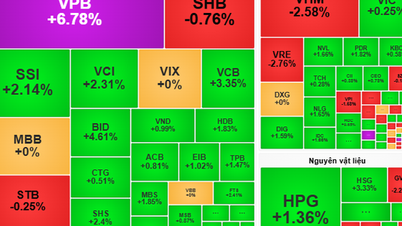

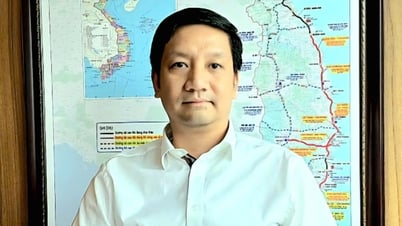

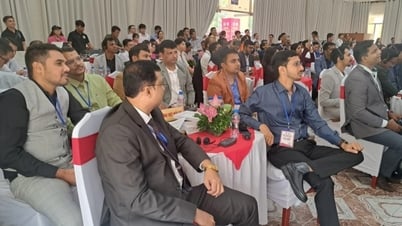







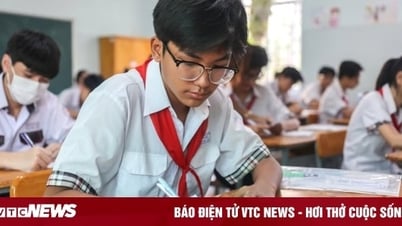











































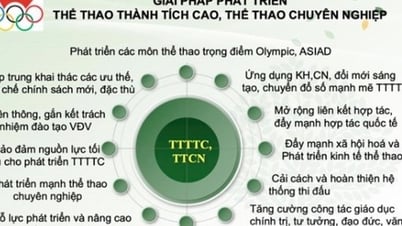


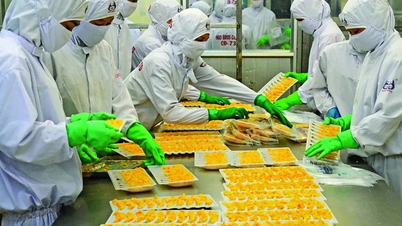
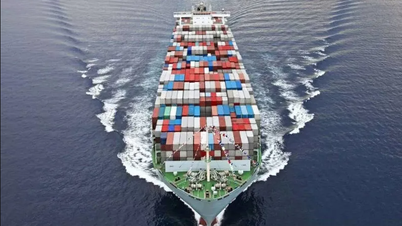
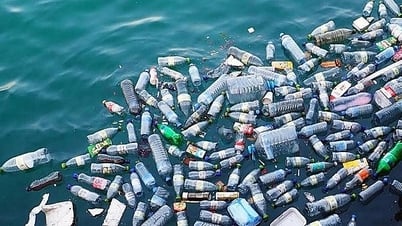


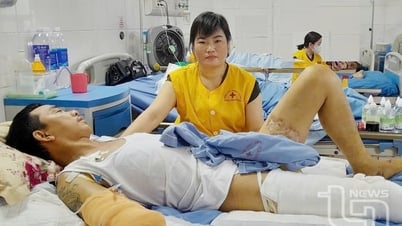





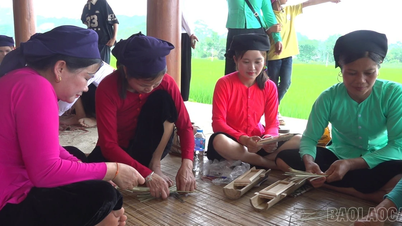











Comment (0)